Can You Put A Power Vent On A Regular Water Heater? (Find Out Now!)

Many homeowners wonder if they can improve the efficiency of their regular water heater by adding a power vent system. Power vent water heaters are touted as more efficient and offer a faster turnaround time than direct vent water heaters. This is attractive to many homeowners who might consider adding a power vent to their existing water heater.
Professionals in the water heater industry advise against adding an aftermarket power vent system to a standard water heater. Making any such change to an existing water heater may void the warranty and damage the burners of the water heater. In some cases, adding a power vent to an existing water heater may violate building codes.
Adding a power vent system to an existing water heater can be a safety issue for you and your home. Understanding the difference between power vent water heaters and direct vent water heaters can help explain why this is not recommended. Before you add an aftermarket power vent to your water heater, take the time to educate yourself about the problems and effects this can have.
Do You Need Water Heater Installation or Replacement?
Get free, zero-commitment quotes from pro contractors near you.

Power Vent vs. Direct Vent Water Heaters
By looking at two water heaters, you may have difficulty distinguishing a power vent-equipped water heater from a direct vent. The most visible difference is the addition of a fan unit on the vent system of the power vent water heater. Direct vent water heaters will have only a connection for a vent pipe to the outside for the combustion gases.
More Difference than you Can See
There are other differences between direct vent and power vent water heaters that are not easy to spot. These differences make it a bad idea to retrofit a power vent system on a direct vent water heater. For instance:
- Burner Design – Power vent water heaters require different burner configurations and designs than direct vent heaters. The airflow across the burners is often much greater with a power vent system. Installing a power vent system on a direct vent water heater may pull the flames away from the burner, causing a dangerous situation.
- Flue Design – Power vent systems usually require larger flues or pipe rated for higher temperatures. The flue on your direct vent water heater may not provide adequate protection for the higher temperatures that can be found in power vent systems
- Different Control Systems – Power vent systems require different control elements than a direct vent water heater. Most power vent systems use a complex system of sensors to monitor vent temperature, burner temperature, and airflow at various points in the system. It is difficult to retrofit an existing direct vent water heater with these kinds of sensors and controls.
- Combustion Air Requirements – Most power vent water heaters are equipped with a second vent from the outside to provide adequate combustion air for the burners. A home fitted with a direct vent water heater may not have this external vent connection. Adding this combustion air vent can be expensive, adding to the cost of the conversion.
Many of the reasons for discouraging installing a power vent on a direct vent water heater are these internal differences. In some cases, making these changes to a direct vent water heater void the warranty or may not comply with local building codes.
Which is Better – Power vent or Direct Vent
Neither a power vent system nor a direct vent system will work in all situations. The key to choosing the best option for your water heater vent system is to work with a qualified plumber to determine which type best fits your needs.
There are no one best fits all solution to your water heater selection. Where the water heater is installed, the size of the water heater required, and the heat source are all considerations. Some obvious things make one type of water heater work better in some situations.
Outside Access for the Vent
In general, direct vent water heaters make more sense where the vent pipe can exit the house vertically through the roof in a straight line. Since the heat of the combustion gases drives them up the pipe, this direct route to the outside is important.
Power vent water heaters are the choice where the vent pipe must run horizontally or make several twists and turns as it makes its way upward to the outside. A long vent pipe run can cool the exhaust gases from a direct vent water heater to the extent that it will no longer rise, which is a dangerous situation.
Outside Combustion Air
Most power vent water heaters need a source of outside combustion air to work efficiently. In many cases, this is a second vent pipe that brings outside air into the water heater. A power vent water heater may not be a good solution in homes where easy access for a second vent pipe is not available.
Installing an aftermarket power vent on a direct vent water heater without additional combustion air can cause burner problems. This can result in several situations with the water heater that can be dangerous.
Efficiency vs. Economy
Typically there is a tradeoff between efficiency and economy between power vent and direct vent water heaters. Direct vent water heaters are cheaper to install than power vent water heaters. On the whole, power vent water heaters are a bit more efficient. However, running a power vent water heater costs, chiefly the extra electricity needed to operate the fan.
Replacing a direct vent water heater with a power vent system is usually more expensive because of the additional requirements for vet pipes, electricity to operate the fan, and a combustion air vent installation. It is hard to calculate whether you can recoup the cost difference in the long run.
Do You Need Water Heater Installation or Replacement?
Get free, zero-commitment quotes from pro contractors near you.

The Question of Retrofits – Adding a Power Vent to Your Direct Vent Water Heater
The quick answer to this question is don’t. Industry professionals almost always clarify that adding a power vent to a direct vent water heater is not a good idea. Rather than risk problems and possibly dangerous situations, these professionals suggest that you consult with a qualified plumber to find the best solution to your hot water needs.

Dennis is a retired firefighter with an extensive background in construction, home improvement, and remodeling. He worked in the trades part-time while serving as an active firefighter. On his retirement, he started a remodeling and home repair business, which he ran for several years.
More by Dennis Howard



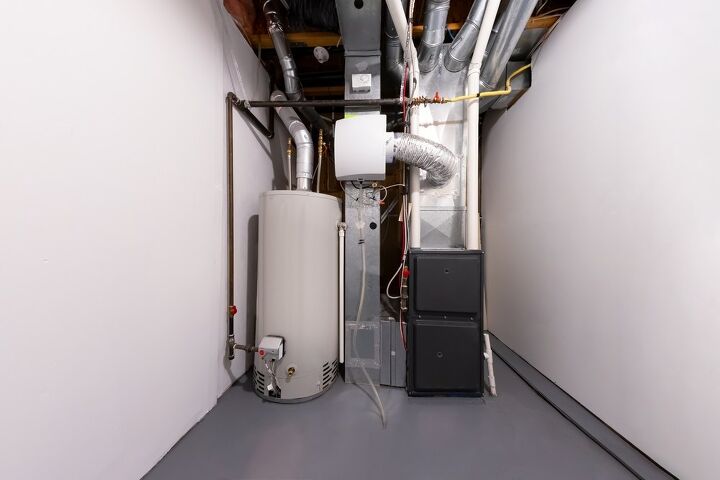






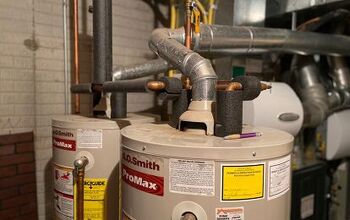
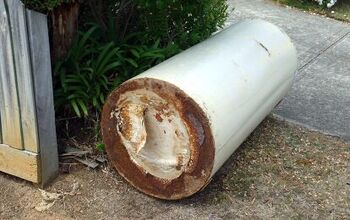
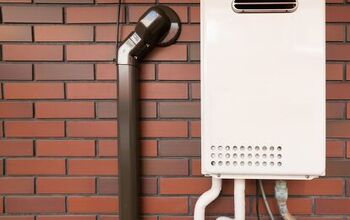
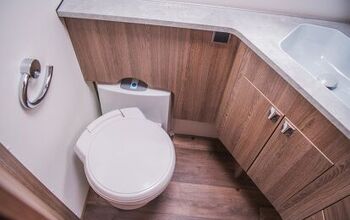
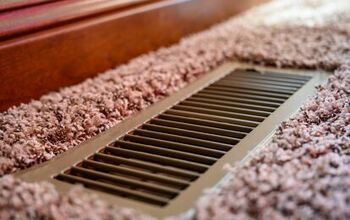


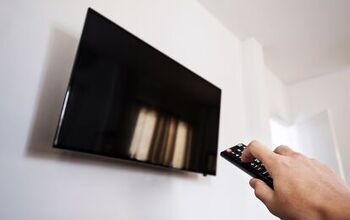

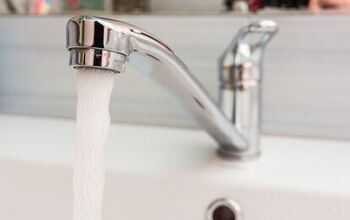
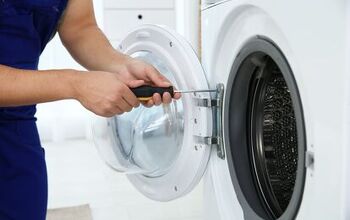



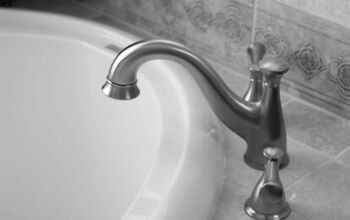
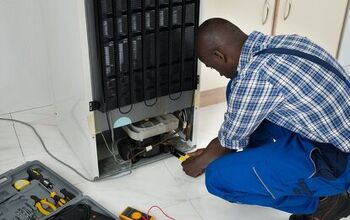

![Cost To Drill A Well [Pricing Per Foot & Cost By State]](https://cdn-fastly.upgradedhome.com/media/2023/07/31/9074980/cost-to-drill-a-well-pricing-per-foot-cost-by-state.jpg?size=350x220)